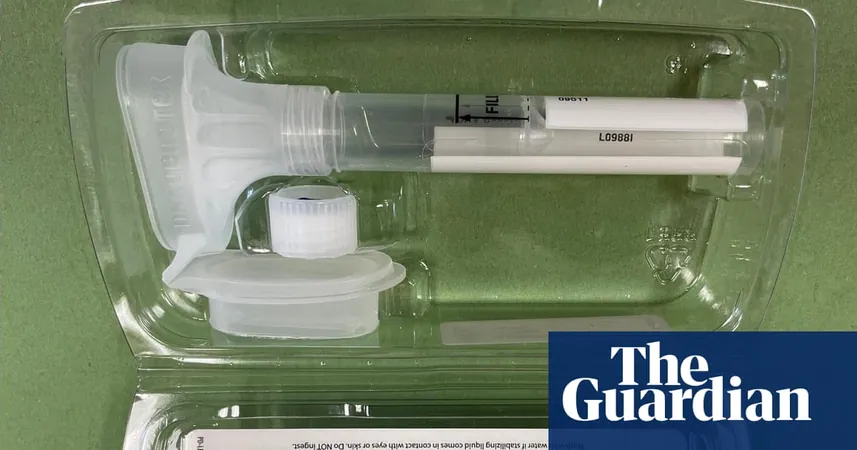
Revolutionary Saliva Test Outshines Blood Test in Prostate Cancer Prediction, Experts Say!
2025-04-10
Author: Olivia
A Game-Changer in Prostate Cancer Detection
Imagine being able to assess your risk of prostate cancer from the comfort of your home. A groundbreaking study suggests that a simple at-home saliva test is outperforming the traditional blood test in predicting the risk of this life-threatening disease.
The Power of Genetics Unleashed
This innovative saliva test evaluates 130 genetic variants to generate a polygenic risk score, which has proven to be a more effective predictor of aggressive prostate cancer cases compared to the widely used PSA blood test by the NHS, which measures levels of prostate-specific antigen.
Leading the research, Professor Ros Eeles from the Institute of Cancer Research in London stated, With this test, we could potentially turn the tide on prostate cancer. Our findings suggest that a straightforward and cost-effective saliva test can help identify at-risk men early based on their genetic background.
Expanding Beyond European Heritage
Following the initial trial, termed Barcode 1, researchers have developed an updated version of the test that incorporates additional genetic risk factors for men of Asian and African descent, currently undergoing evaluation.
Current Screening Limitations & New Call to Action
Currently, routine PSA testing isn’t offered on the NHS. However, men over 50 can request it from their GP. Those with elevated PSA levels might then face invasive follow-up tests. Prominent figures like Chris Hoy, battling terminal cancer, advocate for broader access to these tests for younger men, particularly those with a family history of the disease.
Health Secretary Wes Streeting recently indicated openness to a targeted screening program for higher-risk groups, depending on credible evidence. While many experts caution against universal screening due to the risk of unnecessary procedures, others highlight the need for more effective detection methods.
Why the PSA Test Falls Short
One major challenge with the PSA test is its high rate of false positives—three out of four men could receive misleading results, leading to unnecessary stress and invasive procedures. The saliva test not only has a higher accuracy rate but also effectively identifies more aggressive forms of cancer. In recent findings, of the cancers detected through the saliva test, over 55% were classified as aggressive, compared to only 35% identified by the PSA blood test.
A Hopeful Future for Prostate Cancer Screening
By combining this polygenic risk score with existing screening methods, experts believe it could significantly improve patient outcomes—allowing healthcare providers to focus on men who truly need aggressive treatments while sparing others from unnecessary interventions.
In the words of Professor Kristian Helin, Chief Executive of the Institute of Cancer Research, The current PSA test often leads to unnecessary treatments and misses some cancers. There’s a pressing need for better screening tools. This research represents a vital step forward, highlighting the life-saving possibilities of genetic testing.









 Brasil (PT)
Brasil (PT)
 Canada (EN)
Canada (EN)
 Chile (ES)
Chile (ES)
 Česko (CS)
Česko (CS)
 대한민국 (KO)
대한민국 (KO)
 España (ES)
España (ES)
 France (FR)
France (FR)
 Hong Kong (EN)
Hong Kong (EN)
 Italia (IT)
Italia (IT)
 日本 (JA)
日本 (JA)
 Magyarország (HU)
Magyarország (HU)
 Norge (NO)
Norge (NO)
 Polska (PL)
Polska (PL)
 Schweiz (DE)
Schweiz (DE)
 Singapore (EN)
Singapore (EN)
 Sverige (SV)
Sverige (SV)
 Suomi (FI)
Suomi (FI)
 Türkiye (TR)
Türkiye (TR)
 الإمارات العربية المتحدة (AR)
الإمارات العربية المتحدة (AR)